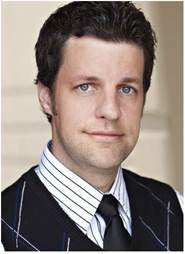 Jeremy Kingsley, author of the book Inspired People Produce Results: How Great Leaders Use Passion, Purpose and Principles to Unlock Incredible Growth, has some important insights into the power of connection.
Jeremy Kingsley, author of the book Inspired People Produce Results: How Great Leaders Use Passion, Purpose and Principles to Unlock Incredible Growth, has some important insights into the power of connection.
I really appreciated how the country (and others around the world) paused on Tuesday, April 15, to commemorate the first anniversary of the Boston Marathon bombings. Many gathered in Boston. Elsewhere, people witnessed the ceremony the same way they’d witnessed the attacks, on screens and through speakers.
Wherever we were, we remembered the lives lost and harmed as we listened to the church bells and bagpipes, the speeches and children’s choir. We reflected on the admirable courage of the first responders and others who put aside their own safety and rushed in to help others.
The most memorable voices at the commemoration were those of the survivors. Many had been through an agonizing year of physical and emotional recovery.
Almost with one voice, they cited the same source of strength and healing. What we heard from them again and again was the importance of community.
“We would never wish the devastation and pain we have experienced on any of you,” said Patrick Downes, who was injured along with his wife in one of the explosions. “However, we do wish that all of you, at some point in your lives, feel as loved as we have felt this last year.”
“We no longer have to think philosophically about the capacity of the human spirit,” he said.
Adrianne Haslet-Davis, also among the seriously injured that day, cited the strength and support of the community of survivors as well as the city that “stood by us, supported us, and helped us heal.”
Massachusetts Governor Deval Patrick summed it up: “There are no strangers here,” he said. “I hope that as we remember the dead and the injured we remember community. . . . it all adds up to an enduring example of the power of common cause, and of working together and turning to each other when we could have easily turned on each other.”
I found myself remembering my friend Jeremy Lloyd. He had run in the marathon last year and his wife and children, waiting and cheering like so many other families. As the chaos began to unfold, I immediately sent him a text, I saw Facebook and Twitter fill up with messages exchanged among his circle of friends. We all checked in to see if anyone had heard anything, exchanged prayers, and reassuring one another until we finally got word that they were all OK. The following Sunday he told his story at a local church, and he told me later how overwhelmed he and his wife, Whitney, had been by all the people who came to them afterward offering support, love, and encouragement.
In everyday life, most of us try to keep our personal lives separate from work. It’s a good principle, although some ideals —like relationships and community—span both realms. In business or after hours, it isn’t hard to find messages that encourage us to think of our successes as being ours alone and our challenges and troubles as something best kept to ourselves. We cherish our independence and autonomy, and hold up the “self-made” success as an icon.
Independence and self-reliance can be worthwhile traits in a certain context, without question. But if tragedies like the Boston Marathon bombings have a valuable principle to take away, it’s in reminding us that we can always accomplish more—whether we’re grieving or healing, growing or celebrating—in connection with others.
Jeremy Kingsley is a professional speaker, best-selling author, and the President of OneLife Leadership. Jeremy holds bachelors and masters degrees from Columbia International University. He is the author of four books, his latest is titled: Inspired People Produce Results (McGraw Hill 2013). Jeremy lives in Columbia, South Carolina with his wife and two sons.
For more information, please visit Jeremy’s website: www.JeremyKingsley.com.




